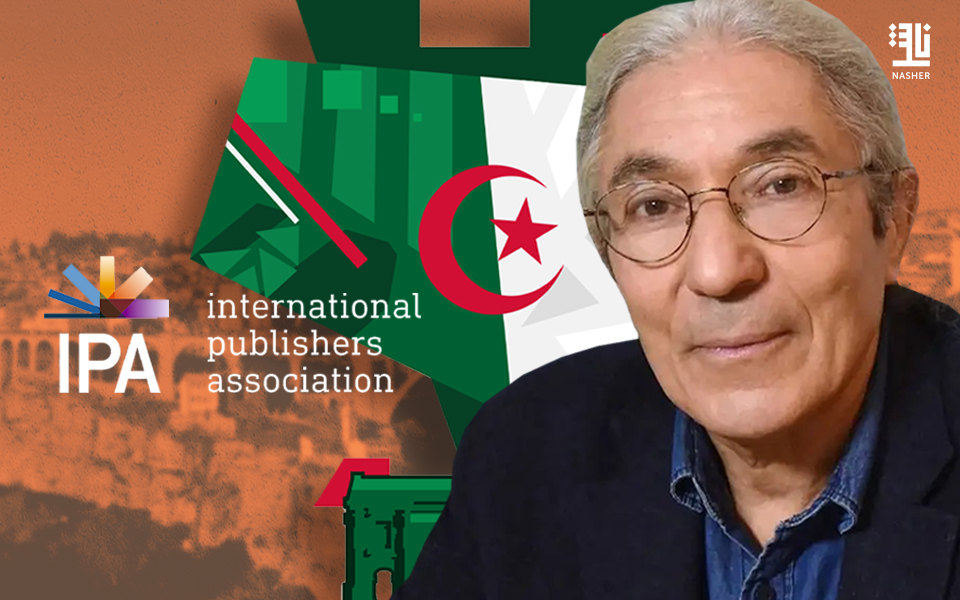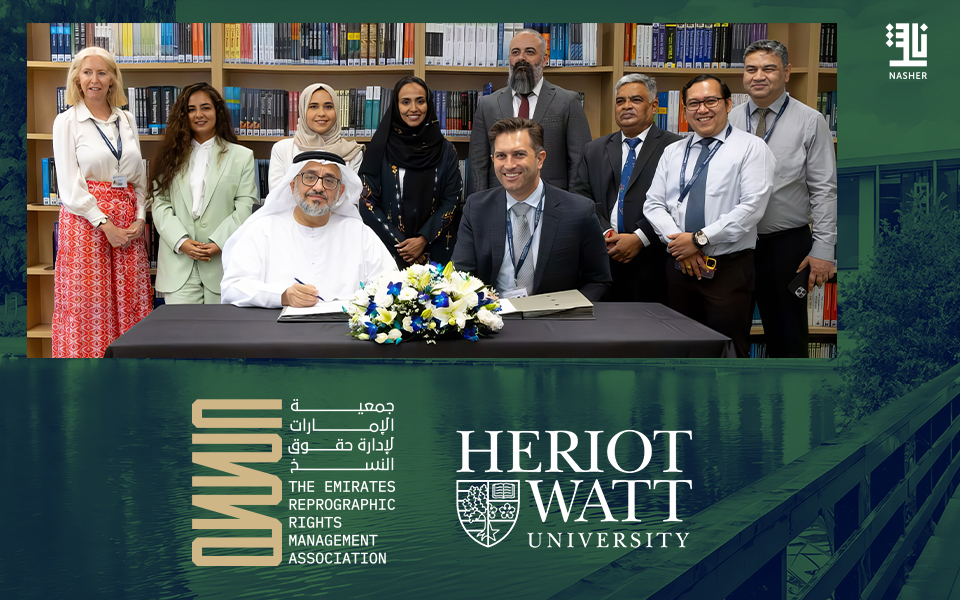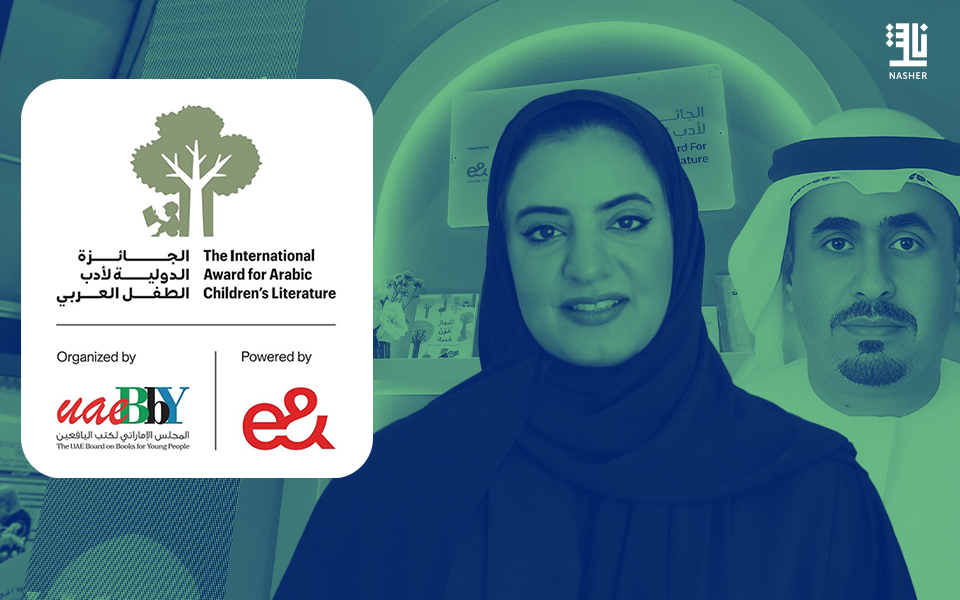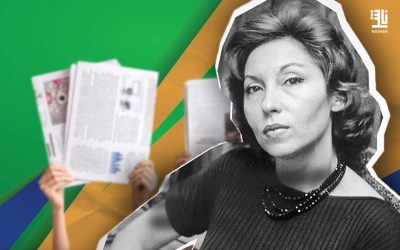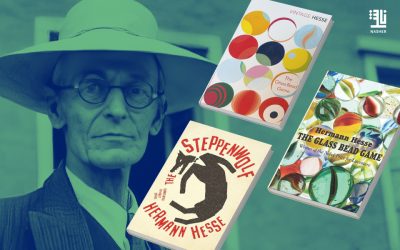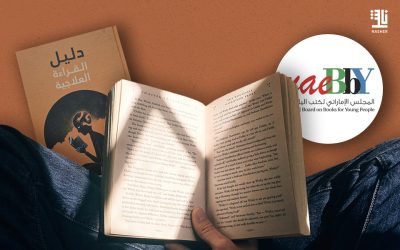Reading as a passion
Abdul Razzaq Bukoba – Algeri
“How can we make reading a daily practice?” This was the question Algerian writer, Abdul Razzaq Bukoba, asked. His call to make reading second nature and a lifelong habit among Algerians is not made just because he is a writer, media professional and cultural activist; it is based on real experiences of how books have enriched his life. Filled with eagerness, surprise and passion, this is Bukoba’s exclusive contribution to the Nasher website.
He believes we need to answer a number of questions in order to strengthen our initiatives in writing, reading and publishing. These questions include: which reader do we want and what will we provide him or her with? The lack of an Arab cultural environment that values human development activity, except in a very few Arab locations and these are subject to envy and distortion, rather than moral support and praise.
Here, I would like to honour people whom I have met serendipitously in different Arab cities, and who have remained unforgettable. I do not know if they are the minority, or if they constitute a good percentage that we do not pay attention to because we are too accustomed to talking about the “crisis of reading” in the Arab world. This kind of uninformed judgment is echoed by intellectuals and media professionals without relying on studies or accurate data. I keep telling myself when I meet a person who can be safely described as an antithesis to the Arab world’s reading crisis: “This person actually knows what he/she is talking about, and is not just glibly trotting out received opinion.”
A golden mother
At book fairs, we generally find people selling food and drinks near entrances and on nearby sidewalks. However, a woman trying to sell a gold ring is what I saw when I was at the Casablanca Book Fair in Morocco recently.
Upon spotting her, I was immediately curious to know her story and so I asked: “Why are you selling this elegant, distinctly styled ring?” The woman responded, “I have raised my three children since they were very little to read a few pages of a book daily before they sleep, until they became ready to give up dinner but not their daily habit of reading. This year, I have no money to afford to buy books for them from the book fair, and so I am left with no choice other than selling my ring.”
I got my pen and notebook and began writing as she continued to speak. “I never beat them when they did something wrong. Instead, I made them memorise a story I had purchased previously. I ensured the books they were reading were interesting and useful. Whenever they became curious about a topic or sought new information, I gave them money to go buy and a book from the nearby bookshop. If I noticed that they stopped reading because they got the intended answer, I encouraged them to complete the book.”
This golden mother continued: “My gifts to them on different occasions, including my birthday, were always books. I asked them to give me books as gifts. I read and praised these books a lot in their presence in order to draw their attention to these books. I have never travelled with them without having books in my bag. Once we are on a bus or train, I start to wave the books at them exactly at the moment when they start complaining about the length of the journey.”
She acknowledges that she tried a method that succeeded in making her children love reading; “I intentionally bring with me a narrative film on a CD, along with the novel on which the film is based. I show them the CD and hide the novel until they finish watching the film. At that moment, reading the novel becomes one of their biggest demands. Sometimes I give it to them directly, and sometimes I ask them to complete a book that they had left before. This leads them to read both eagerly.”
Upon hearing her story, I asked this noble lady to keep her ring and follow me into the fair to get a year’s supply of books. This collection included books signed by the authors themselves. Now, who can deny the generosity of an Arab author in this regard?
Books were a ray of hope for this Syrian refugee
Two months ago, a Syrian refugee who earns a living by seeking help from homes, knocked on my door. Once she saw the bookcase in my living room, she exclaimed: “God bless you, don’t give me money, I want books.” It was a scene of equal sadness and joy – sadness for the Syrian people, who have been displaced in the world so harshly and wrongfully, and immense joy to come into contact with a human being who was ready to give up money for the sake of a book.
This wonderful lady, Um Taif, said that her daughter did not remember anything from what they left behind in Syria, except her library. “She cried on her books, as she was leaving, more than she did when her brother was buried. As soon as we arrived in Algeria, she began asking for its libraries, and soon she knew them all. We owe to those libraries most of what we gain from the benefactors,” she said. Summarising the reason for her daughter innate love of reading, she remarked, “Her father was working away from home, and he brought her books whenever he came home to us. He told her that he will return quickly if she reads them quickly.”
Books kept this boy afloat in prison
The train was running hastily between the cities of Annaba and Algiers at night, and I was trying to pass time by reading a great novel, The Alchemist by Paulo Coelho. Whenever I took my eyes off the book, I saw a boy staring at me.
I finished the novel and was about to put it back in my backpack when the boy’s hands caught mine. He said, “No doubt you thought I am a thief, from my appearance and from the way I have been staring at you. However, I was just looking at you to ensure that I knew exactly the moment you finished reading that book. I must take it, either as a gift, by buying it or by force. You may pick the way you want.”
I said: “As a booklover, I am honoured to come into contact with another fan of Paulo Coelho. He responded, “I would have done the same if it was any other book. I have been reading everything that comes my way for 10 years now – a practice that began in prison where my older brother concealed a book for me in the basket during his weekly visits. At first, I condemned it. Soon it became one of my demands in the emptiness of the prison. Do you know I read 423 books over seven years? Why don’t Arab governments and families allow books in prisons?”
I told him: “Whenever I asked an Arab father, why do you not buy books for your children, he said it was because of the high prices of books. But I do not get an answer when I ask him: “These books are expensive, compared to what? To a pack of cigarettes, for example?”


